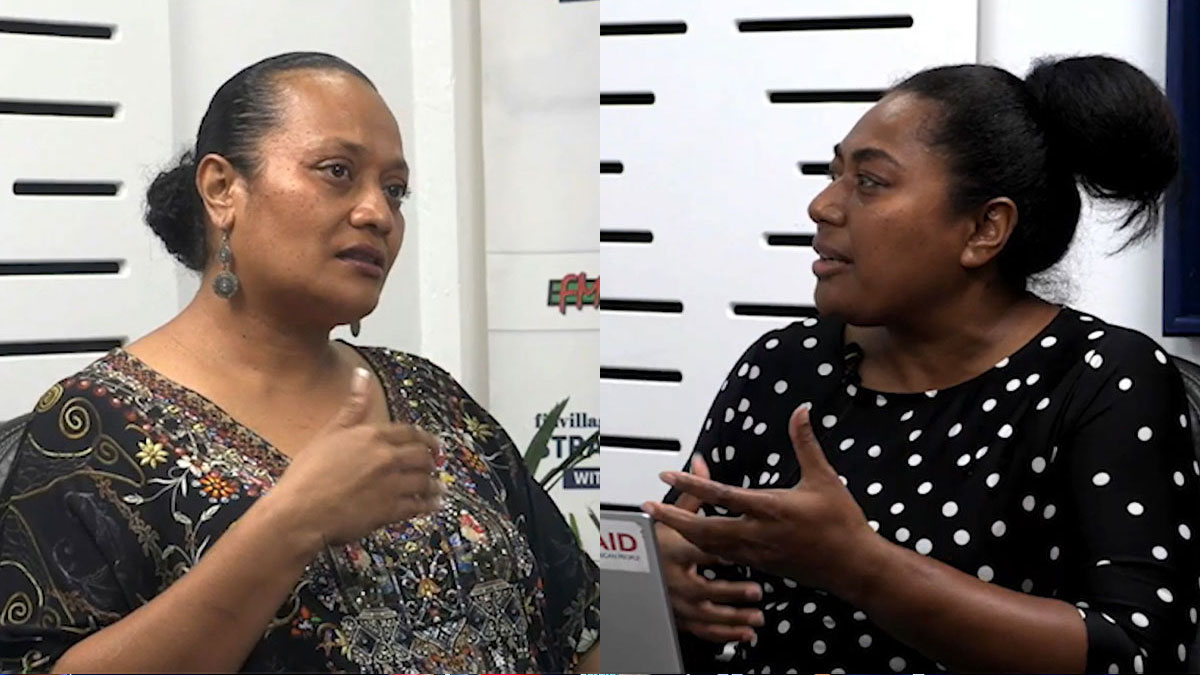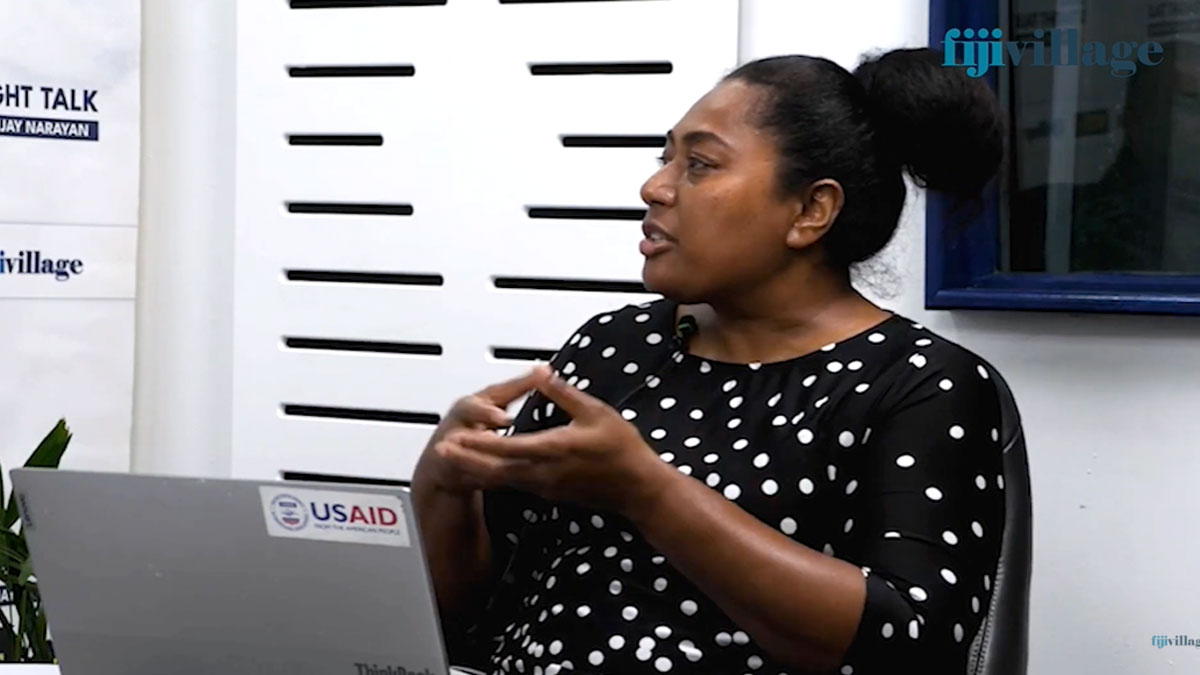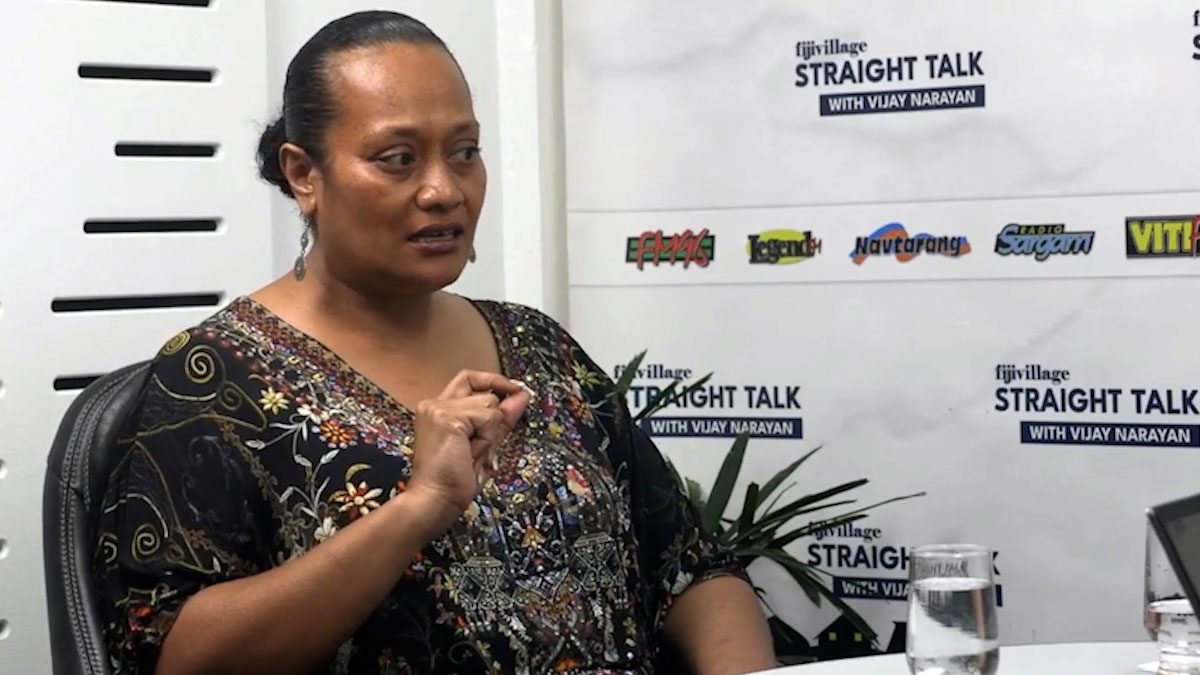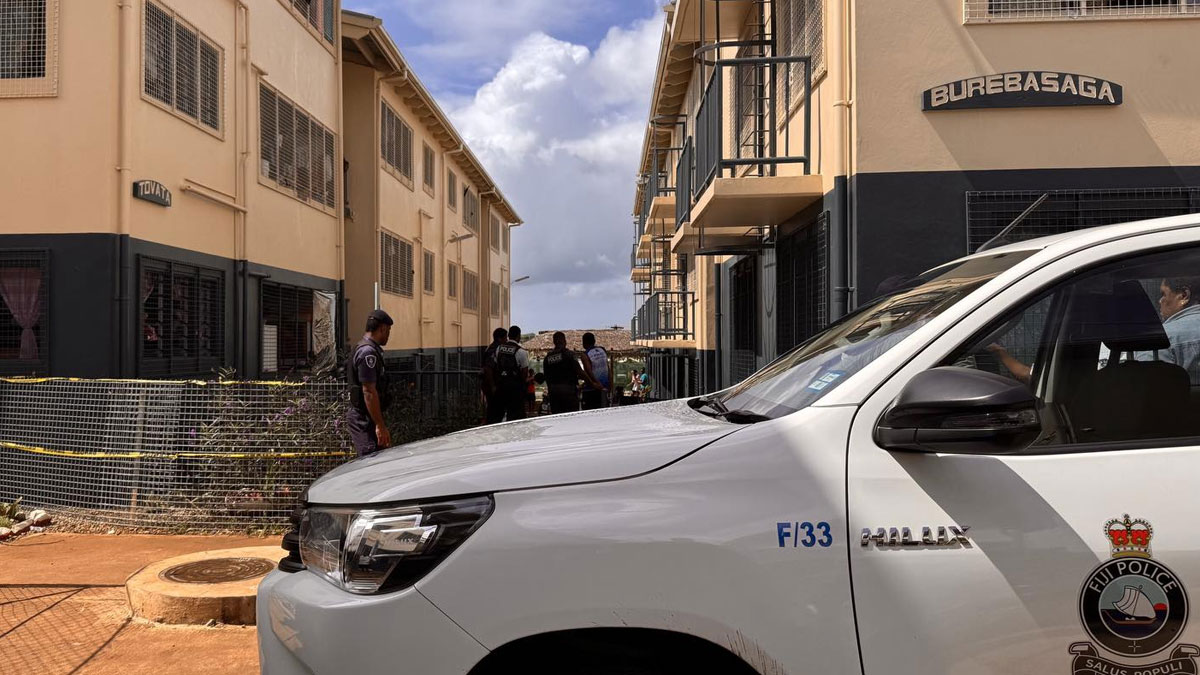
The show will focus on human trafficking as Butakoci Production is an approach to raising awareness of Trafficking In Persons, considered a taboo subject, given links to gender-based violence.

Young girls used for human trafficking don’t even understand that it's a crime – Rasuaki
As we mark World Day Against Trafficking in Persons today, it has been revealed that there have been many cases where girls from Fiji have told their stories regarding human trafficking and, unfortunately, they do not understand that it is a crime.
Asia Foundation Program Officer, Nanise Rasuaki highlighted this on fijivillage Straight Talk with Vijay Narayan when asked about what she has found out on the ground about human trafficking while working with the non-government organisations.
Rasuaki says when she was working with a particular NGO, she had a case where a 15-year-old girl was sold for cash and cases that come to the NGO are usually dealing with sexual exploitation.
The Program Officer further says when we talk about human trafficking there is an act, the means and the purpose which involves three elements and the act is usually through harbouring, transferring movement of a person and through coercion and manipulation.
USAID says with a rising incidence of trafficking in persons within, between, and into Pacific Island Countries, the region has become a source, transit point, and destination for human trafficking.
They say the Pacific Regional Initiative and Support for More Effective Counter Trafficking in Persons (“Pacific RISE-CTIP”) program strengthens TIP prevention, protection, and prosecution through a holistic, multi-sectoral approach that engages government, civil society, and the private sector.
The initiative prioritizes Fiji, the Republic of the Marshall Islands, Tonga, Papua New Guinea, and Palau.
Working closely with USAID, The Asia Foundation provides strategic, programmatic, and financial oversight of the project.
They say Fiji is a source, destination, and transit country for men, women, and children subjected to sex trafficking and forced labor.
Geographically, Fiji has an extensive porous border with a vast maritime zone that makes it vulnerable to trafficking in persons as a transit and destination country for men, women, and children.
In the 2024 Department of State Trafficking In Persons Report, Fiji is ranked Tier 2 watchlist.
Pacific RISE-CTIP addresses TIP in Fiji by strengthening prevention, protection, and prosecution mechanisms and strategies through close collaboration and partnerships with the Fiji TIP Interagency National Trafficking Committee (INTC) to implement Fiji’s National Human Trafficking Strategy 2021-2026 and National Action Plan to Combat Human Trafficking 2021-2026.
Rasuaki says the thought process of Butakoci Production regarding the concept of human trafficking started in 2013 when she understood the lyrics of the song ‘Lai tei dalo ko tamaqu’ and wanted to raise awareness on what trafficking in persons is and that trafficking in persons is not something new.
Rasuaki says human trafficking is the modern-day slavery part, it is not a new concept as it has been in the country since the 1800s in the form of the Girmit era and Blackbirding.
She adds that she contacted Butakoci theatrical musical production lead, Talei Draunibaka to create the concept and implement it into a musical theatre production.
You can also watch the Butakoci Production video on our facebook page and YouTube channel, fijivillage from 7pm tonight.

Some people in society push away human trafficking victims without knowing their story, and this is because of the lack of information within the society.
This was highlighted by the Butakoci Production lead, Talei Draunibaka during fijivillage Straight Talk with Vijay Narayan and she stressed that the only thing people consider is that a particular person is participating in a human trafficking act and would not want to be associated with them.
Draunibaka says one thing that stands out for modern-day trafficking is the fact that even when they are trying to go to society or to people closest to them, they are pushed away.
She says society and individuals can change this by creating dialogue.
When asked what she noticed on the ground, Draunibaka responded that human trafficking is not new, it started with the Girmit era in Fiji, which was one of the reasons why she focused on women in the Butakoci Production.
She says people who came through the Girmit era went through atrocious treatments, and the way they were treated is unbelievable.
Draunibaka says women were constantly trying to protect themselves but did not have the freedom or the ability to do so, and it didn't mean the other gender didn’t suffer.
She says during the Girmit era, men were sold for 45 rupees and women for 55 rupees.
Stay tuned for the latest news on our radio stations

